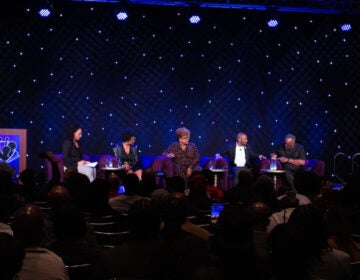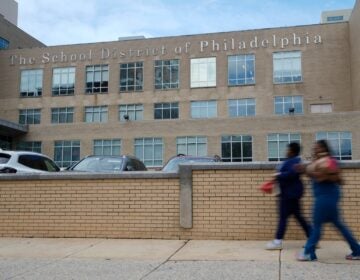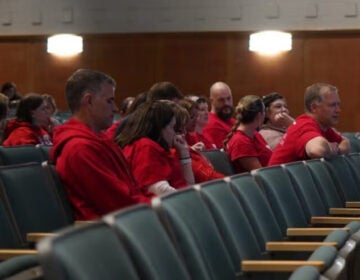Philly teachers who police their own — an argument against eliminating seniority
ListenLast week, Philadelphia School District Superintendent William Hite announced that the district intends to suspend the state school code and eliminate seniority as the predominant factor in all staffing decisions for the 2014-15 school year. The district has filed a motion asking the state supreme court to judge whether this unilateral decision is legal.
[Listen to two veteran Philadelphia teachers offer their perspective on seniority and teacher quality in the interview above.]
“Our plan helps each and every student have the right teacher with the right skill-sets to support quality learning. We have seen firsthand the impact the right teachers have on students,” Hite said in an official release.
“We must implement these changes now to be ready for the coming school year,” he said. “In one instance, a high school chemistry teacher who was voted ‘best teacher’ by students lost his job simply because he lacked seniority. We cannot continue to allow that to occur.”
The Philadelphia Federation of Teachers, whose contract with the district expired Aug. 31, has long opposed ending seniority — which exists in every other school district in the state. The PFT sees the debate around seniority as a red herring for the district’s real problem: a lack of adequate resources.
Union president Jerry Jordan has instructed the group’s attorneys to “oppose strongly this bogus effort by the SRC to avoid its legal obligation to bargain in good faith.”
Before the announcement was made, I sat down with two district teachers to discuss the perceptions surrounding seniority and the district’s teaching workforce in general.
Robeson High School teachers Andrew Saltz and Karla Johnson related an experience far different from the “parasite” teacher narrative that they say often pervades the education-reform conversation in Philadelphia and beyond.
Too often, they say, anti-seniority arguments are bolstered through anecdotal evidence much like Hite’s Chemistry teacher example.
[Listen to Saltz and Johnson offer their own anecdotal tale in the interview above.]
They say that rather than moving up the seniority ladder for decades, underperforming teachers are often confronted and counseled out of the profession long before being officially marked “unsatisfactory.”
Instead of attacking seniority, they wish the district would place greater focus on building a culture of accountability in schools. They say: trust teachers to be professionals, build a leadership culture that helps improve the performance of all, provide the necessary resources, and fire those who prove that they cannot perform the job.
Our conversation was spurred by a post on Saltz’ blog, which detailed the story of how one ineffective teacher was forced out of Robeson HS after faculty and administration pressured her to either improve or leave.
“[She] couldn’t isolate herself. She couldn’t hide. She couldn’t form a clique of people who didn’t care because we would not allow it,” Saltz said.
“It doesn’t matter who it is,” said Johnson, “when we have someone try to come into our environment and harm our children, we don’t like it, we don’t enjoy it, we don’t want it, and we do everything we can to not have that happen to our kids.”
—
To listen to the extended interview with Philadelphia School District teachers Andrew Saltz and Karla Johnson, click the audio button above.
WHYY is your source for fact-based, in-depth journalism and information. As a nonprofit organization, we rely on financial support from readers like you. Please give today.





